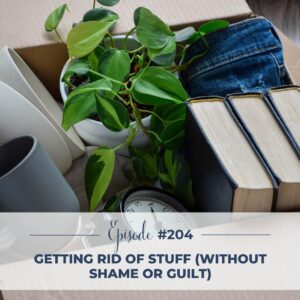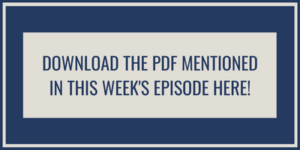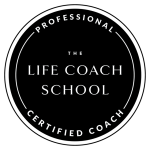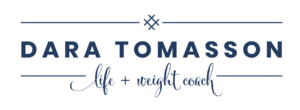Welcome to The Quilter’s Coach Podcast, Episode 204!
Do you have boxes of stuff in your home that don’t even belong to you… but you still feel responsible for?
Do you feel overwhelmed just thinking about where to start — so you don’t start at all?
If the answer is yes, this episode is for you.

Whether it’s fabric you’ve been “saving for later,” photos from your dad’s amateur photography hobby, your great Aunt Sue’s china, or bins of your adult kids’ belongings, the emotional weight of stuff is real. And it’s often tied to self-worth, people-pleasing, perfectionism, and grief.
In this episode, you’ll discover:
- Why letting go of physical clutter is also about letting go of emotional weight
- How cultural and family identity can keep us stuck in our stuff
- The most powerful question to ask when you feel stuck: “What would be delightful?”
- Why generic decluttering systems don’t work for everyone — and how to create your own
Plus, hear a touching member win about a woman in her 70s who finally stopped the pattern of emotional eating (starting with just one lonely cookie 🍪) — and how her mindset shift changed everything.
This is not just about getting organized.
It’s about creating peace in your space — and in your mind.
🧠 Mentioned in this episode:
👯♀️ Ready for Deeper Connection?
Inside the Love Yourself Thin Membership, we’re spending July exploring what it really means to be with ourselvesinstead of just distracting or avoiding. Our Summer Bucket List Challenge is all about creating joy and connection — whether that’s making solo hikes, taking museum trips, or making charity quilts from a place of love and presence.
Want in? Let’s make this summer about being with yourself in ways that feel meaningful, not lonely.
Resources & Free Worksheets:
- Join Love Yourself Thin: www.daratomasson.com
- Follow me on Instagram: @daratomasson
If you are ready to lose weight and change the way you think about hunger, sign up for the lifetime access of The Love Yourself Thin membership! Doors are open and you can find all the information by clicking here.
Bonus: Want to go deeper? Sign up for Dara’s FREE class to learn how to rewire your brain and change your inner dialogue for good. Join the Facebook group to get a code and join the Masterclass for free.
Please continue to rate this podcast, and follow me on Instagram for more tips and support.
- Watch this episode on YouTube.
- If you are ready to lose weight and change the way you think, sign up for the lifetime access for The Love Yourself Thin Membership! Doors are open and you can find all the information by clicking here.
- Leave me a review in Apple
Full Episode Transcript:
204. Getting Rid of Stuff (Without Feeling Guilt or Shame)
Do you have a lot of stuff? In your house that you don’t want anymore, but you don’t know how to get rid of it. And you have a lot of stuff that belongs to you, your parents, a great Aunt Sue or your kids, and you just don’t know what to do. so it feels so overwhelming that you don’t do anything at all.
Can you relate to that? I am so glad you came to this podcast. My name is Dara Tomasson, and this is the Quilts Coach Podcast, episode 204. Getting rid of stuff.
I have such a good podcast for you today. I’m really excited to be sharing it with you. You might have to grab a tissue. It might be emotional and that’s all right. We embrace all of that.
But let’s go into it. I’m gonna teach you some strategies, some skills, and. Hopefully just even broaching the topic will open your mind and you’ll be able to think of things in a different way. That’ll be really helpful.
Hang on. I’m gonna share a win and then we’re gonna go into the meat of this podcast.
So the win was actually from a member who just joined, She’s down eight pounds in the last 12 days. She has been following me for years and it’s really awesome to watch her transformation.
It’s so fun because we’ll be back and forth on Instagram or she’ll come to different free trainings that I’ve done for years and I just always believed in her. It’s been Really fun to watch her change. she shared this story today that I just thought I have to share with you all because so many of you can relate to this.
She’s 72 and her daughter has two daughters and her daughter, unfortunately was hurt, had to go to the hospital. And the good mom comes in, the good grandma, and so she’s taking care of the girls. she even fell and she was like, okay, I still need to take care of these girls. She’s making meals for them. And she thought it’d be nice for them to have some chocolate chip cookies.
She did not eat any of the chocolate chip cookies. She went back to the house to make another meal and she saw one lonely chocolate chip cookie leftover, and she looked at that chocolate chip cookie and she was like, you look so lonely. I should just take care of you. And then she said to herself, no, I’m not doing that anymore. That’s not who I am, because if I eat that lonely chocolate chip cookie, that means that I’m not honoring this big goal that I made for myself and that would feel really bad and I don’t wanna do that.
And so it was just amazing to watch her to be able to be with herself and this idea of this pattern that she’s been going down where she’ll get excited about something. Get on this like the bandwagon, right? And just say, oh, I gotta do this and I’m gonna be better and I’m gonna not eat the thing. But she realized it’s not helping her. And so with coming to the calls, even though it’s been like two weeks, And she’s just seeing such a difference.
So it’s possible for everyone, I promise. Okay, so now I’m gonna tell another story.
Been such a cool experience, when you have that expression about being the fly on the wall and you think that’d be so fascinating to be that fly on the wall for that situation. Being a coach is a bit of a chance of being able to get those insights and so I have a client who inherited a lot of photos.
Her father was an amateur photographer. And for years, he would take lots of pictures. And so he took the pictures, he has lots of slides and he was part of a club. And so they would, they would have different challenges, right? And so they would have models or they’d have we’re gonna do different exposures.
This is interesting when we inherit things. just because someone dies and they’ve kept something, does that mean that it’s important for you to, take care of every single thing, or was it that they just didn’t get around to getting rid of it all, and we know going through pictures doesn’t always take priority.
And I have known this client for five years, and this has been a burden that she’s been caring for a long time She wants to honor her dad. She wants to feel like she’s being the good daughter. But there’s been a lot of resentment. There’s been a lot of feelings.
And so we’ve been talking in our group about. How do we let go? One of the things that I talk about with weight loss is we hold a lot in our bodies, right? We hold our identity. A lot of families will be overweight or even cultures they tend to be a larger, people. And part of it is a cultural thing. And so as we’ve been looking at different aspects of why are we holding onto the weight? Why are we continuing to keep that weight on. What is it like, what would happen?
And so as she was applying these concepts I was talking about, she realized that there is some weight, mental weight that she’s carrying, emotional weight that she’s carrying around with her father. And so she was doing some self coaching and realized that looking at the pictures brings up a lot of sadness, of course, of her dad’s death. But she also had this realization of when you care about something, you take care of it.
When she found the pictures, they were all in boxes down in the basement, in the storage room. So did her dad really care about those things? Were they really that important? Was she making this more important than it needed to be? So there’s lots and lots of new discoveries, and she was by the, but because she was able to open herself up and start questioning, are these things really even important?
Do I, what do I, we even wanna do with these pictures? Or do what if he, if they were really important to him, would he have put them in albums or would he would’ve documented them or would he would’ve.
So she started now because she was not so attached to I need to be a good daughter, and a good daughter does these things. When she was able to play around with it, she realized maybe this isn’t such a big deal after all. Maybe I’m putting more into this than it needs to be.
And the more that she did that, the more she was able to create her own rule book. So she could write down, okay, when I’m going through these pictures, if it is something that has to do with a class that he took, I can get rid of it.
If it has to do with family and a family story, then I will. And now she has a structure, she has a system, and she’s open to, changing it and looking at it. And then she’s also given herself a chance to look at, if it’s a slide, how many slides am I willing to convert?
Where would I even put those pictures? What is the destination? What is the purpose? What am I gonna do with that? The thing that was so amazing as she was sharing this with me was she realized I was looking at this in the wrong way because the way that she was looking at it was, I’m a bad daughter ’cause I haven’t done this yet. So depending on the lens that you look at something will determine the outcome.
I took a quilting class from my friend Cheryl once, she was talking about using scraps and said, lay out. We made all these Hasbro triangles and put them on the ground or on your design wall, we just happened to have a lot of ground space ’cause we were at a quilt class. And she’s take a picture of it and then use the different settings on your phone, black and white, gray scale. And she said, when you change that lens, you can see different. You can see what’s like really glaring and that’s what this woman did. She changed her lens of actually I am a daughter that takes care of things because I just want to.
I wanna ask you some questions about weight loss or getting rid of stuff. What if, the way that we came to it, if we were thinking in order for me to be a good daughter, I have to do this, and this, versus what sounds fun to me?
Oh, and that’s the thing. This is actually how it all got started. I’m doing reverse engineering. It all came from, we were on a call, a group call, and I said, what would be delightful? What’s something you could do that would be delightful? And as she let her brain go into that, she realized it would be, I would be delighted to be free of all of these photos from my dad or have them all organized and sorted.
And actually recently she, so a week later she just had this impression or this vision or this insight and she saw a quilting room that had lots of open space. The only things in there was what she was working on. No overwhelming stash, no, lots of things hanging on. It was just the one thing that she was working on, and I think maybe two other projects. That was it.
Now that her brain is asked the question, what is delightful? Her brain is offering her new ways of thinking and it’s fascinating We have a lot of stories, a lot of lenses that don’t serve us. But if we don’t slow down and ask different questions like, what would be delightful? Then we don’t have the opportunity to get that insight.
I actually had the experience of going with my sisters working through my dad’s stuff. He had a lot of stuff. I think my dad probably had at least 47 journals. It was amazing. my dad has kept every single pair of glasses he ever owned, which is shocking to me.
He also has kept so many newspaper clippings, I got three ring binders and plastic sleeves, and we just went through all these things I did not have time for, professional scrapbooking I just put stuff in those sleeves my dad has dementia and anytime anyone visits. He will show them those binders, they did not take us very long, but we were able to put those in those sleeves. We were also able to take pictures of things and just get rid of things too.
I was able to ask myself some questions about what is the most important. What is the legacy we wanna leave? What would be a way to honor him? Do we need to keep his glasses? No, but do we wanna keep like the play bills that he had in in the plays that he was in and his football and basketball, news clippings. Yeah, those are really great.
So getting rid of stuff, what the best way to get rid of stuff. Is for you to figure out what’s important to you and what’s not, and then for you to decide what would be delightful, what would be great. I have a friend who lives about an hour away and she’s super creative and loves making stuff.
I have given her a lot of fabric. I’m gonna see her this weekend and I’m pretty sure I’m gonna go through my fabric again and give her more because she makes more stuff than I do.
I just give her more stuff and when I say stuff, I mean like fabric. It is delightful for me to see her use up the fabric.
You might have clicked on this podcast episode because you wanted me to give you a system and do these five things and you will be clutter free and know what to do. No, because guess what? We’re all different.
I do remember years ago, Vanessa Christensen did a clutter challenge and it was awesome. She said, put everything in a box, and if you don’t use that in a month, then get rid of it. And I was like, wow, that’s fabulous. Could I do that again? Yeah, I could. And guess what? I have gotten rid of some things that afterwards I’m like, oh, why did I get rid of that? I could have used that right now, but guess what? I can have some regrets, but the fact that I don’t have my garage full of stuff that maybe one day I might want, it’s okay. It’s worth it.
My sister-in-law, had a book that broke down how much it costs to store things in your house. So we could use those strategies, but that usually just leads to shame and feeling bad about yourself, and that’s not very good fuel.
We also can, have that whole perfectionist thing coming of if I don’t do it the right way, then I’ll feel bad about myself. So we’re not gonna do that.
The best way to get rid of stuff is to say what would be delightful. Do you know how delighted I am that my dad has that binder and he shows people? Would it be maybe better if it was like beautifully like scrapbook and written in and yeah, sure.
But that was not the case and it won’t be for a long time. Does it matter really? Like really.
The main purpose of this podcast episode is to stop looking for everyone else’s solution on how to get rid of stuff. Everyone’s gonna have an opinion. Great. Everyone’s entitled to an opinion, but the best thing that you’re gonna do is you’re gonna come up with your own opinion.
You’re gonna figure out a solution that could work for you, experiment on that possibility, try it, and evaluate what went well, what didn’t go so well, and what can I do better next time? Then you’re just gonna tweak it and it’s gonna get better.
So that’s what I got for you today. Go and try that. Let me know how it goes. And don’t forget, we have the summer bucket list challenge in July, and we are working on learning how to not be a perfectionist. If you wanna find, take the quiz of what kind of perfectionist you are, make sure to do that in the, in notes below.
I have that for you. All right, take care everyone. Bye.




